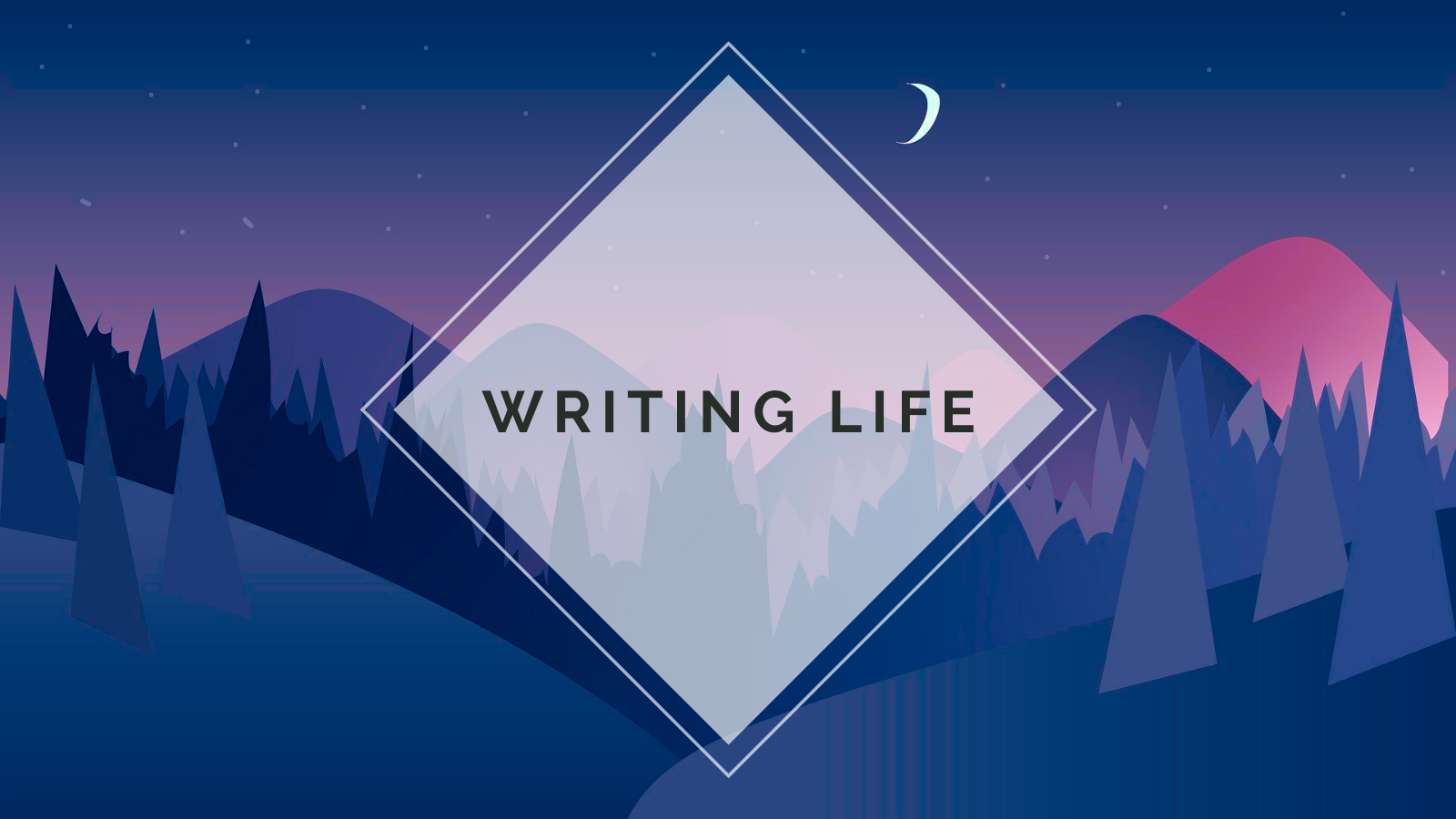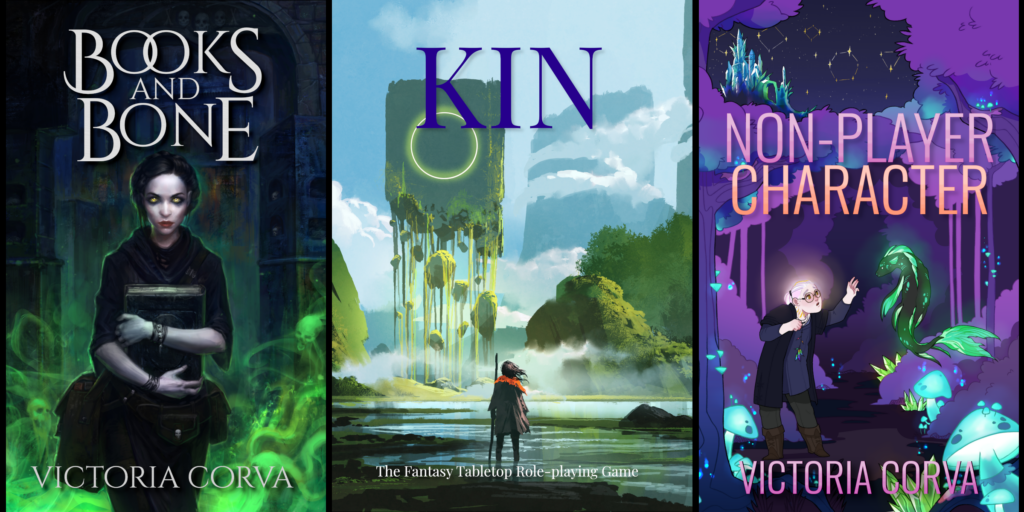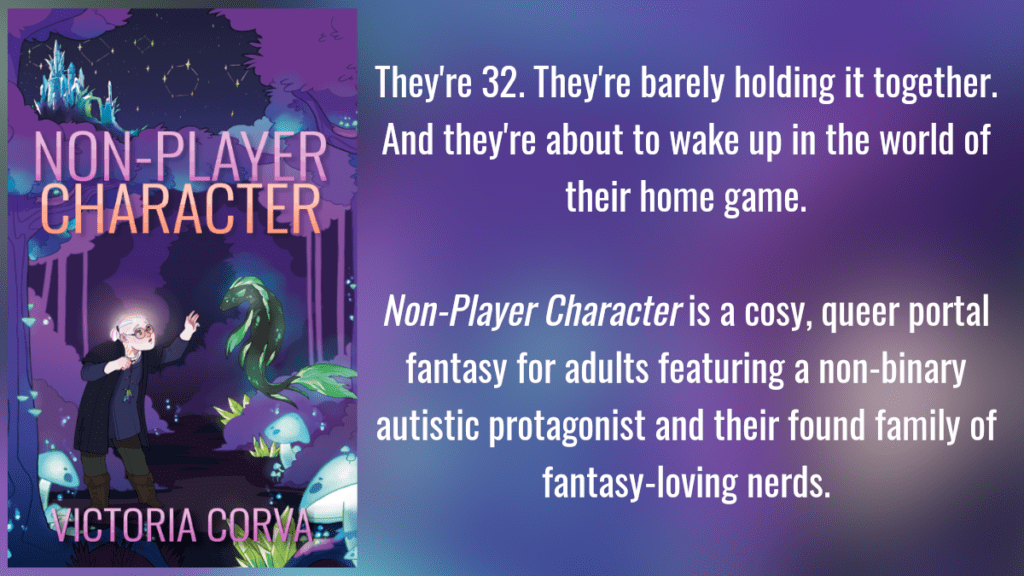
I don’t think I’ve ever made a post like this. For so long, my goal was just to be published. Well, I’ve published three books now and I have no intention to stop any time soon. That’s no longer a goal; that’s an inevitability.
Writing goals are easier; writing goals are completely within my control. I aim to improve my craft or challenge myself in a specific way with each book, and so far that’s going fine. But publishing goals … that’s a little trickier. Because most of my goals around publishing are not entirely within my control, and that’s because publishing, even as a self-publisher, doesn’t just involve me. It involves my readers, past and future. And it involves booksellers, too.
The Goals
So what are my goals? Probably not as lofty as you’d think:
- Non-Player Character to appear on a list of queer books, autistic books, or books with queer or autistic authors
- Books & Bone to appear on a list of asexual books, queer books, or books with queer or asexual authors
- Kin to have independent content published for it by other creators under the Third Party License
- my publishing updates newsletter to hit 200 subscribers
These are not, I hope, excessively greedy goals. More than anything, these represent a desire for my books to be seen and acknowledged. My newsletter hitting 200 subscribers is not such a huge ask: far more than 200 people have read my books. For Kin to have independent content published to me would be the ultimate acknowledgement that people are playing and enjoying the world and mechanics I created.
But it’s the first two goals that feel the farthest away and also the most dear to my heart. Because it feels, in some way, not just like the queerness of my books being recognised. It feels like my queerness being recognised. But for my books to appear on a book blogger’s list, they first have to be read by book bloggers. Self-published authors are notoriously under-represented in this regard; book bloggers are very busy and want to ensure the quality of the books they read and review, and feel (understandably, if regrettably) that books by big publishers are more likely to have that quality. And indeed, those books are also likely to bring them more return, as those publishers can point more traffic their way.
So for my books to even appear on the radar of someone constructing such a list, they need to be discoverable. And this, too, I have unfortunately learned is beyond my ability to influence. And in some cases, the content of my work is actively working against it being discovered.

Lack of discoverability
I learned this the hard way when I published Non-Player Character, my most overtly and proudly queer novel. When I wrote Books & Bone, I was still working through my identity and I still intended to publish traditionally, and knew that if I wrote about queer identities that trad publishers would demand that I was publicly queer so that they could market the books as such. I was nowhere near ready for that.
When I wrote Non-Player Character, I was openly non-binary, openly queer, and self-publishing besides, so I knew it was all in my own hands, and I believe that really shows in how openly out and proud the book itself is. The Kickstarter was subtitled: ‘a cosy queer fantasy novel’. The blurb of the published novel says the same.
But unfortunately, this has worked against it now that it’s been published. While Books & Bone was picked up by booksellers and distributors without issue, Non-Player Character seemed to take forever to appear on two mainstream booksellers. I got frequent questions about it and felt like an absolute failure that it wasn’t appearing. I was in constant contact with my distributor, who told me they had no control over what booksellers chose to stock but that I should make sure the cover was professional, the blurb had no errors, and the discount was large. I ensured those things. I discounted Non-Player Character again and again. Currently, it has a 25% steeper wholesaler discount than Books & Bone. It still never appeared on these frequently requested mainstream websites.
I began to pore over these two books, trying to work out what the difference was. And then it clicked.
Non-Player Character uses the word ‘queer’ in the blurb.
Books & Bone does not.
This was made even more obvious when this year I made Kin available in print and it was picked up by one of these sellers without issue (at a much lower discount than Non-Player Character, I might add).

The punishment for writing a ‘queer’ novel
Am I saying that these mainstream booksellers do not stock queer books? Certainly not. They stock plenty of queer books. But I wonder how many books they stock that use the word ‘queer’ in the blurb. I can’t help but wonder whether my book got caught in an automatic filter that has decided that my identity is a bad word, or even by a real person who believes the same.
I can’t help but look at the discourse around the word queer — a word that describes a large part of who I am — and think that I am being punished for using it. For being it. I can’t forget the time during my Kickstarter when someone asked me ‘Why are you using the q word in your Kickstarter? I thought that was a bad word, and that you need to use LGB+ or whatever’.
I use queer, of course, because of the letters that get shaved off of LGBTQIA+ or else over-written by more ‘acceptable’ definitions. Because of the many letters that do not appear because being queer encompasses far more than a string of letters can easily contain. Because queer is singled out as a slur even though it is in the same list of letters, much though people pretend to forget that when they abbreviate it further and further.
I haven’t reached out to these mainstream booksellers to try to rectify this. As a self-published author, it seems a useless endeavour. They have every right to choose not to stock my books, and I have no power to move them and no evidence that the ‘queer’ in NPC’s blurb is the reason, though I can find no other.
But it’s a reminder of how little control I have over meeting these goals, and over my discoverability in general. It’s also, unfortunately, a reminder of how as an independent author with no backing my identity can be held against me.
I still hope my books will appear on those lists, as hard as my books may be to find. And while I was writing this post, I did recieve a message from Proud Geek, a queer bookstore, that they were stocking Non-Player Character and wanted to check what queer representation it holds. Seeing it on pages of ‘Queer Books’, ‘Asexual Books’ and ‘Non-Binary Books’ was very close to my goal of being included on a queer book list, and for that I am extremely grateful.
I suppose I’ll see what the future holds. But I’m not giving up on my goals. And I’m certainly not giving up on queer.
This post, like all my work, is made with thanks to my supporters on ko-fi. If you’d like to support my writing, streaming, and creation, please do consider tipping or getting a membership.
